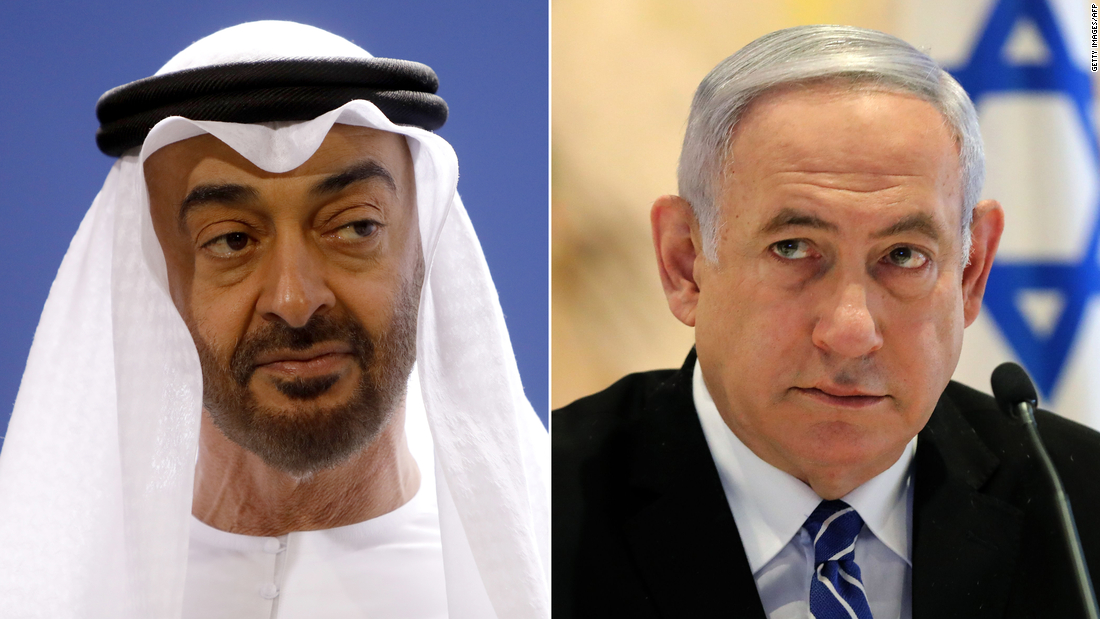“The United Arab Emirates signed the Agreements for the hope and opportunities they offer our people, not individual leaders,” an Emirati official told CNN.
“Customizing and politicizing the Agreements in this way lowers historical achievement. The United Arab Emirates will not follow this path,” added the official.
Netanyahu, who faces a general election in five days, has since renounced the name of Abu Dhabi’s Crown Prince Mohammed bin Zayed in recent appearances and campaign stops, introducing himself as the facilitator of the UAE’s multi-billion dollar investment projects in Israel and suggesting that your opponents do not have the same influence.
The proposed investment in the United Arab Emirates, said Netanyahu a week ago, “is another way in which our economy will be boosted. I think this is another issue that [Israel] the public is faced with – who will drive our economy? ”
On Wednesday morning, Israeli radio, quoting people inside the Prime Minister’s Office, reported that Netanyahu was scheduled to fly to Abu Dhabi the next day. A few hours later, the Prime Minister himself appeared on the radio repelling these reports and, instead, talking about the prospect of further normalization agreements with the Arab countries.
“There are four more historic deals coming up, which I intend to deliver,” said Netanyahu. “I am not going to travel to Abu Dhabi before the election; the reports that I would go are cute, I don’t know who started them. I will go later.”
In Abu Dhabi, officials made it clear that they were frustrated by what they considered the Israeli leader’s “internal election propaganda”.
“The aim of the Abrahamic Agreements is to provide a robust strategic basis for promoting peace and prosperity with the State of Israel and across the region,” tweeted presidential adviser and Minister of State for Foreign Affairs Anwar Gargash on Wednesday. “The United Arab Emirates will not participate in any internal election campaign in Israel, now or ever.”
Last week, the United Arab Emirates announced plans to invest $ 10 billion in Israel. Days later, the minister of Industry and Advanced Technology, Sultan Ahmad al-Jaber, warned that the plan should not be seen as “politically associated”.
Netanyahu himself has long wanted to travel to Abu Dhabi, a trip that would serve to highlight his diplomatic achievements as he fights a tough electoral battle, but so far without success.
Last week, the Prime Minister’s Office issued a forceful statement after Netanyahu was forced to cancel previous plans to make the trip.
The statement accused Jordan of banning travel by closing its airspace, in an apparent eye-to-eye movement after Israel modified the security arrangements for the Jordanian Crown Prince’s planned visit to the al-Aqsa mosque in Jerusalem.
Jordanian Foreign Minister Ayman Safadi, in an interview with CNN’s Becky Anderson, did not regret it.
“You deny an agreement with Jordan, you interrupt a religious visit. You create conditions that make this visit sacred, this religious, on a sacred occasion, impossible. And then you hope to come to Jordan and fly out of Jordan, we will be seriously here, is that something that could be expected? “
Abu Dhabi also cited Covid-19’s concerns as a reason for the last-minute cancellation.
